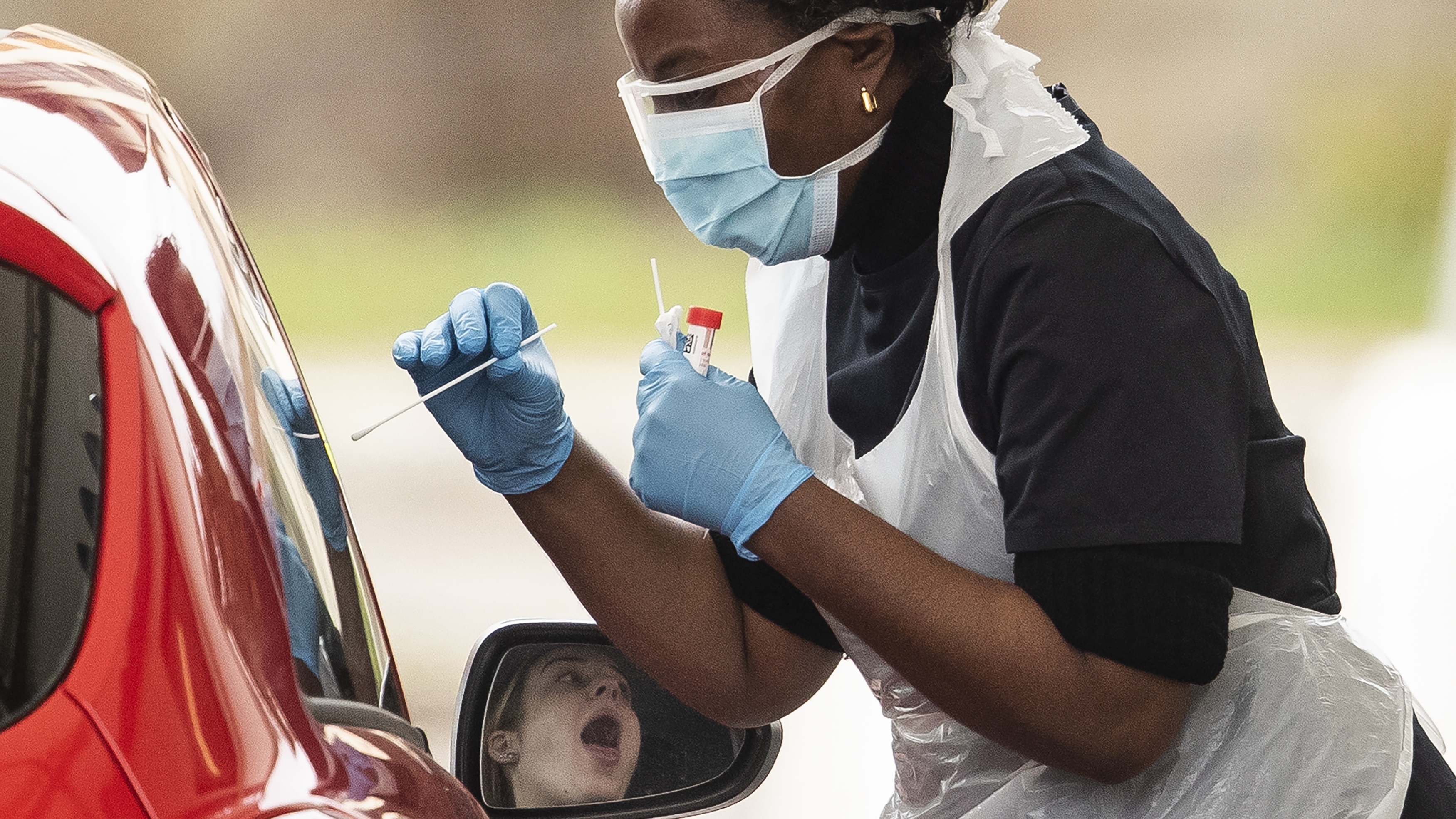Eight in ten Covid cases in UK show no ‘core symptoms’, research finds
New study says well-known indicators such as cough and loss of smell are a ‘poor marker of infection’

A free daily email with the biggest news stories of the day – and the best features from TheWeek.com
You are now subscribed
Your newsletter sign-up was successful
The majority of people with Covid-19 exhibit no “core” symptoms when they get tested, a major new study has found.
Scientists at University College London (UCL) analysed data on more than 36,000 people tested for coronavirus in the UK between April and June and found that of the 115 who tested positive, 88 (76.5%) presented no symptoms.
And a further 9.6% of people who tested positive showed none of the classic Covid symptoms – a cough, fever, or loss of taste and smell.
The Week
Escape your echo chamber. Get the facts behind the news, plus analysis from multiple perspectives.

Sign up for The Week's Free Newsletters
From our morning news briefing to a weekly Good News Newsletter, get the best of The Week delivered directly to your inbox.
From our morning news briefing to a weekly Good News Newsletter, get the best of The Week delivered directly to your inbox.
In a paper published in medical journal Clinical Epidemiology, the scientists conclude that “Covid-19 symptoms are a poor marker of (Covid) infection”.
That verdict have “prompted fears that future Covid-19 outbreaks will be hard to control without more widespread testing in the community to pick up ‘silent transmission’”, says The Guardian.
The UCL team are calling for a change in testing strategy based on the findings of their study - based on data from the Office of National Statistics (ONS) Covid Symptom Study, which surveys thousands of UK households every week regardless of whether the respondents have symptoms.
“Frequent and widespread testing of all individuals, not just symptomatic cases, at least in high-risk settings or specific locations” would be key to preventing transmission, they write.
A free daily email with the biggest news stories of the day – and the best features from TheWeek.com
Study co-author Irene Petersen, a professor of epidemiology at UCL, “said university students are one group who should be tested regularly, and definitely before they go home for Christmas”, The Telegraph reports.
“You may have a lot of people who are out in the society and they’re not self-isolating because they didn’t know that they are positive,” she added.
However, some experts believe the research findings may be misleading, according to the Science Media Centre, an independent press office for science.
Paul Hunter, a professor in medicine at the University of East Anglia, argues that because the study only focused on the moment of testing, the results cannot accurately determine the proportion of people with Covid who become symptomatic or remain asymptomatic at some stage during their infection.
“Anyone who was previously symptomatic and had now recovered or who were currently incubating the infection and would develop symptoms within the following hours would not be included as being symptomatic in this study,” he said.
-
 What to know before filing your own taxes for the first time
What to know before filing your own taxes for the first timethe explainer Tackle this financial milestone with confidence
-
 The biggest box office flops of the 21st century
The biggest box office flops of the 21st centuryin depth Unnecessary remakes and turgid, expensive CGI-fests highlight this list of these most notorious box-office losers
-
 The 10 most infamous abductions in modern history
The 10 most infamous abductions in modern historyin depth The taking of Savannah Guthrie’s mother, Nancy, is the latest in a long string of high-profile kidnappings
-
 A Nipah virus outbreak in India has brought back Covid-era surveillance
A Nipah virus outbreak in India has brought back Covid-era surveillanceUnder the radar The disease can spread through animals and humans
-
 Covid-19 mRNA vaccines could help fight cancer
Covid-19 mRNA vaccines could help fight cancerUnder the radar They boost the immune system
-
 The new Stratus Covid strain – and why it’s on the rise
The new Stratus Covid strain – and why it’s on the riseThe Explainer ‘No evidence’ new variant is more dangerous or that vaccines won’t work against it, say UK health experts
-
 RFK Jr. vaccine panel advises restricting MMRV shot
RFK Jr. vaccine panel advises restricting MMRV shotSpeed Read The committee voted to restrict access to a childhood vaccine against chickenpox
-
 RFK Jr. scraps Covid shots for pregnant women, kids
RFK Jr. scraps Covid shots for pregnant women, kidsSpeed Read The Health Secretary announced a policy change without informing CDC officials
-
 New FDA chiefs limit Covid-19 shots to elderly, sick
New FDA chiefs limit Covid-19 shots to elderly, sickspeed read The FDA set stricter approval standards for booster shots
-
 RFK Jr.: A new plan for sabotaging vaccines
RFK Jr.: A new plan for sabotaging vaccinesFeature The Health Secretary announced changes to vaccine testing and asks Americans to 'do your own research'
-
 Five years on: How Covid changed everything
Five years on: How Covid changed everythingFeature We seem to have collectively forgotten Covid’s horrors, but they have completely reshaped politics